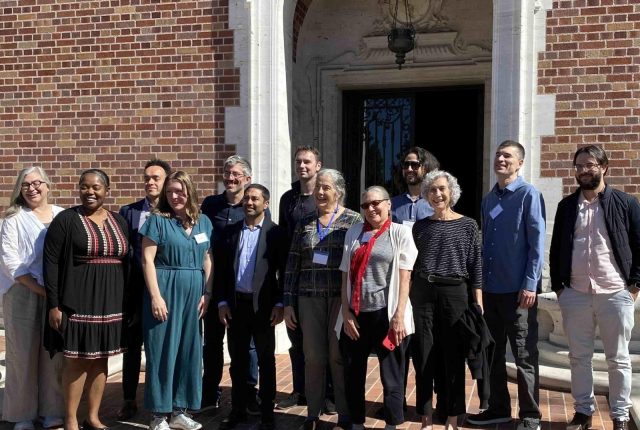
On October 18-19, the UCLA William Andrews Clark Memorial Library hosted the first conference in this year’s Core Program on the Early Global Caribbean, bringing together scholars to explore the cultural, political, and economic convergences that defined the early Caribbean world. The conference’s overarching theme, the interactions between Indigenous peoples, Africans, and European colonizers, showcased how these forces shaped the region. An examination of long-standing intercultural contacts allowed Susannah Shaw Romney to delve into Dutch-Indigenous exchanges in Wiapoco, while Ernesto Mercado-Montero examined the tangled histories of Indigenous, African, and settler populations in the seventeenth-century Lesser Antilles, a site of unfinished conquests and Afro-Indigenous experimentation. From discussions of English authors and travelers projecting the mistreatment of colonized subjects, whether in West Africa or the Caribbean, on other empires (Dr. Cassandra L. Smith), to Indigenous ethnobotanical knowledge across vast chronologies and geographies (Vikram K. Tamboli), and marronage across imperial boundaries (Linda M. Rupert), the conference underscored the Caribbean’s role as a nexus of global interactions, where cultural, political, and economic forces continuously collided and reshaped the region.
Trade shaped many of the histories treated over the two days. Sugar was only one European crop among many in this early period. Michael Bennett examined how its cultivation occupied the energies of English financiers with interests in other parts of the globe. Meanwhile, Brazilian sugar maintained its importance into the seventeenth century, even as Caribbean growers offered competition, as Thiago Krause showed. Melissa N. Morris highlighted illicit trade and invasions that connected the Caribbean to broader Atlantic networks, while Leonardo Moreno-Alvarez illuminated how Spanish merchants trafficked in enslaved people during an overlooked period in the mid-seventeenth century when foreign traders did not hold asientos, as contracts permitting this trade were known. David Wheat examined the trade that occurred beyond the official transatlantic voyages between colonies and Spain and the illicit trade that others have discussed; instead, he focused on trade with the Canaries, with Brazil, and with Africa to the Spanish Caribbean as well as the internal trade between islands (carrying hides, flour, venison, and other local products), which contributed greatly to the economic development of the region. These trading routes have seldom been considered given the scholarly focus on certain transatlantic routes.
–Rebeca Martínez, Ph.D.Candidate, UCLA Department of History

